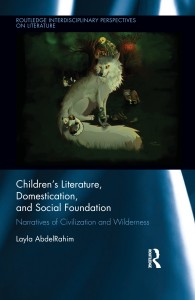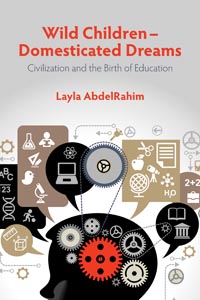I am an independent scholar and author with no institutional funding. Please, consider supporting me on Patreon so I can continue to do the work. Thank you!
How to Disagree
Interview recorded on 6th August 2018, broadcast on 4th September 2018
“Layla is a pleasure to talk to and so the fact that she is in this series of podcasts is a bit of a misnomer. Which is not to say that we agree so much as to say that our disagreements aren’t the focus of our conversation here. I’m happy to, and ended up, set Layla up to present her ideas and projects for the general anarchist space. I think they are interesting and more importantly, how she came to this place is very interesting. That is the bulk of this episode.
That said, if I were going to try to articulate how I think we should disagree with each other I’d start with information/data. Most of the “hot takes” I see on social media and whatnot start a disagreement off my misrepresenting someone else’s position. Layla is a vegan anarcho-primitivist but I am not, in fact, interested enough in either topic (especially from the perspective of trying to somehow win them) to talk about them. But Layla is interested especially in how these principles (or ideologies depending on your point of view) apply to children, raising children, and literature around children. This is very interesting to me (especially as a non-breeder) and I really appreciated the chance to think about something deep and different than I would normally absolutely fulfilling” – Aragorn! Bang (you can listen to the interview on The Brilliant page)
Regarding the question on oppression,
“examples from the publishing industry, discussed earlier, illustrate this point: If black people are oppressed, it signals to those who do not perceive themselves as oppressed and who control the public voice (such as editors, publishers, and “representatives” who speak on behalf of others) that most black people as a group cannot be equal participants in the creation of material and symbolic culture on par with the writers who are perceived as not oppressed or who, if oppressed, do not threaten the empowered with their oppression.
Thus, “knowledge” of “oppression” legitimates further abuse and marginalization of the oppressed, locking them in a claustrophobic space with no exit and no voice. This essentialist rationale equally applies to the “exceptions-to-the-rule”, which are often taken to prove the rule. It prohibits those who are empowered to build personalized knowledge of the other’s experience by actually listening to that voice, empathizing with that experience, and engaging in a dialogue of equals. Semiotics and grammar impede understanding and dialogue, which can occur only if both interlocutors approach each encounter as a unique occurrence.
Not only do the empowered remain deaf to and ignorant of the experience of the oppressed, no matter how perverse and outrageous, they present exploitation of the disempowered as an act of altruism. In civilized logic, the powerful help the disempowered, the weak and the helpless, by exploiting their needs, fears, time, and effort for pay that keeps them disempowered and in need because it is necessarily lower than how much the exploiter earns. This inequality allows the exploiter to continue to gain earnings above and beyond whatever the victim receives. That is, the victim is recompensed in a way commensurate to what the “market” or the “employer”, i.e. the oppressor, identifies as the victim’s worth, based on the category ascribed to her” (AbdelRahim, L. Children’s Literature, Domestication, and Social Foundation: Narratives of Civilization and Wilderness. 2015, pp. 144-145).
Filed in: Uncategorized.









